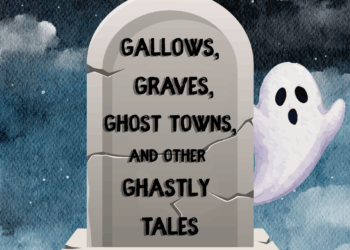Lawmakers have advanced several bills aimed at making at least a dent in the challenges facing renters and aspiring homebuyers. Here’s where things stand as of early March.
By Eric Dietrich MONTANA FREE PRESS
There’s broad bipartisan agreement in the Montana Capitol that rising housing costs, driven by the state’s finite supply of homes and rapid in-migration from other states, rank among the most pressing issues facing Montana residents.
According to real estate website Zillow, the typical home price in Montana was $430,000 in January, a slight dip from last summer, but an increase of nearly double in five years. Anecdotal evidence indicates that rents are also a major pain point for many residents, particularly in tight markets around Bozeman, Missoula and the Flathead Valley.
A poll commissioned by University of Montana researchers last year found that three-quarters of residents considered the state’s lack of affordable housing an “extremely” or “very” serious issue. Gov. Greg Gianforte, who commissioned a task force to examine the issue last year, has called housing “probably the No. 1 issue faced by working Montanans.”
As this year’s session of the Montana Legislature passes its transmittal break midpoint, lawmakers have advanced several bills aimed at making at least a dent in the challenges facing renters and aspiring homebuyers, with many of those measures moving forward with bipartisan support. Here’s a look at where things stand as of early March.
ZONING REFORMS
Market-oriented housing advocates have proposed several purported zoning reform bills this year, arguing that making it easier to build new homes by reining in local government zoning powers would ease the housing crunch by increasing supply. That logic, endorsed by the governor’s housing task force, reasons that more homes and apartments on the market will in the long run make it harder for sellers and landlords to maintain high prices.
Local government leaders have pushed back on most of those proposals, arguing that heavy-handed zoning statute rewrites would prevent local building officials from making sure new developments avoid problems with stormwater runoff, sewer capacity and parking.
Proposed housing-focused zoning bills include the following:
- ❌ House Bill 337, which would have required cities to allow construction on home lots as small as 2,500 square feet. It was sponsored by Rep. Katie Zolnikov, R-Billings, and voted down 10-2 by the House Local Government Committee Feb. 23.
- ❌ House Bill 553, which would have required local governments to treat manufactured housing like site-built structures and make it easier to build accessory dwelling units. It was sponsored by Rep. Alice Buckley, D-Bozeman, and voted down 9-7 by the House Local Government Committee Feb. 23.
- ✅ Senate Bill 245, which would require larger cities to allow apartment-style or mixed-use residential construction in districts zoned for commercial use. Sponsored by Sen. Daniel Zolnikov, R-Billings, it passed the Montana Senate 40-10 Feb. 24.
- ✅ Senate Bill 323, which would require larger cities to allow duplex, triplex and fourplex-style housing anywhere single-family homes are allowed. Sponsored by Sen. Jeremy Trebas, R-Great Falls, it passed the Senate 47-3 March 2.
- ✅ Senate Bill 379, sponsored by Senate Majority Leader Steve Fitzpatrick, R-Great Falls, initially dealt with rural minimum lot sizes. However, lawmakers amended the measure midstream to include provisions from other housing bills focused on urban housing, including the House-side measures voted down by the House Local Government Committee. In its current form, the bill includes slightly watered-down versions of the minimum lot size, accessory dwelling unit and manufactured housing provisions. It passed the Senate on a 33-17 vote March 2.
The Montana League of Cities and Towns, which has opposed many of the housing-focused zoning bills, has also forwarded a comprehensive land-planning overhaul bill, Senate Bill 382. In its current form, it would rework the planning statutes that apply to larger municipalities in the state’s most populous counties, requiring them to predict future population growth and to proactively develop land-use plans that allocate space to build housing to accommodate that growth. It would also shift public participation processes to encourage public comment before developers propose specific projects and require cities to choose from a menu of pro-housing zoning reforms.
SB 382, sponsored by Sen. Forrest Mandeville, R-Columbus, passed the Senate on a 44-6 vote March 2. Like the other surviving zoning measures, it now heads to the Montana House.
HOUSING SUBSIDIES
Low-income-housing advocates have also pushed for legislation that would make more state money available for efforts to build price-controlled housing intended to serve low-income residents who would otherwise struggle to keep a roof over their heads.
- House Bill 546 would expand an existing state program that uses money from the Montana Coal Trust to provide low-interest loans for affordable housing projects. Sponsored by Rep. Dave Fern, D-Whitefish, it passed an initial House floor vote 91-9 and is currently under review by the House Appropriations Committee.
- An as-yet-unintroduced bill, draft LC 2310, would create a state tax credit to complement the existing federal Low-Income Housing Tax Credit program. When introduced, the bill will be sponsored by Rep. George Nikolakakos, R-Great Falls.
Because both measures involve the state budget, they have flexibility to skirt the March 3 transmittal deadline, when non-budget bills were required to have passed at least one legislative chamber.
RENTER PROTECTIONS
Bills that aim to expand legal protections for renters and mobile home park residents, who typically rent the lots their homes sit on, have seen mixed results at the Legislature this year.
- ❌ A bill that would have required application fee refunds for unsuccessful rental applicants, House Bill 233, was voted down by the House Judiciary Committee in January. HB 233 was sponsored by Rep. Kelly Kortum, D-Bozeman.
- ✅ A similar bill, Senate Bill 320, passed the Senate on a 34-16 vote Feb. 27 and now proceeds to the House. It is sponsored by Sen. Ellie Boldman, D-Missoula.
- ❌ House Bill 428 and House Bill 429, Republican-sponsored measures to enhance protections for mobile home park tenants, were voted down by the House Judiciary Committee. HB 428, which among other provisions would have required a two-year term for lot rental renewals, failed on a 6-13 party-line vote. HB 429, which would have required park owners to give tenants 60 days’ notice before a sale to make it easier to organize counter-offers to take the parks into co-op ownership, failed narrowly on a 9-10 vote. The bills, sponsored by Rep. Mike Yakawich, R-Billings, and Rep. George Nikolakakos, R-Great Falls, were both strenuously opposed by landlords.
- ✅ House Bill 785 would guarantee renters who aren’t on month-to-month leases 60 days’ notice from a landlord who plans to change their lease terms or decline to offer them a new lease. Sponsored by Rep. Zooey Zephyr, D-Missoula, it passed the House March 3 on a 60-37 vote.
SHORT-TERM RENTALS
Lawmakers have also considered legislation to address concerns that the proliferation of Airbnb-style short-term rentals has eaten into the housing stock available for rent by permanent residents in many Montana communities — or, conversely, limit how local governments can address those concerns themselves.
- ✴️ House Bill 430 would let local governments add a 0.25% surcharge on top of existing state lodging taxes to raise money to fund programs that pay landlords to rent their properties to workers on a long-term basis. The bill, modeled on an existing program in Big Sky, is sponsored by Rep. Jane Gillette, R-Bozeman. As a budget bill, HB 430 is subject to the later transmittal deadline. It was heard by the House Taxation Committee Feb. 17 and remains pending.
- ❌ Senate Bill 467 would have barred cities and counties from banning short-term rentals or regulating their numbers. Sponsored by Sen. Jeremy Trebas, R-Great Falls, the bill failed a Senate vote 18-32 March 2.
- ✅ Senate Bill 268 would put limitations on local governments’ ability to regulate short-term rentals by explicitly defining short-term rental as a residential use of property and forbidding local bans on property owners renting out their primary residences on a short-term basis. Sponsored by Sen. Greg Hertz, R-Polson, the bill passed the Senate on a 31-19 vote March 2.














